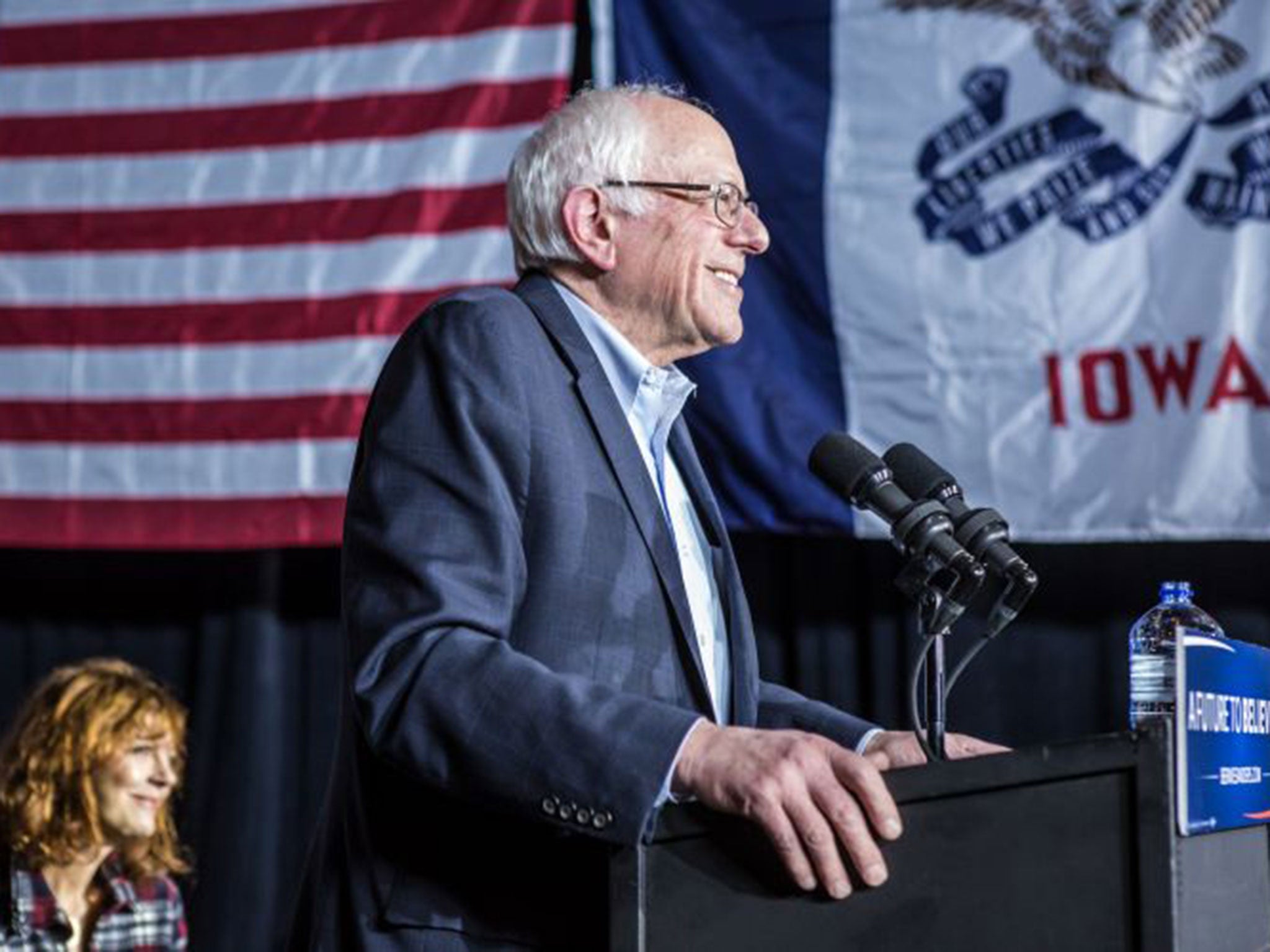The Independent's journalism is supported by our readers. When you purchase through links on our site, we may earn commission.
Jeremy Corbyn and Bernie Sanders have made it clear they like each other – but what are their actual similarities?
For many leftists their version of socialism is a far cry from the revolutionary calls of the past. Conservatives veer wildly between calling them national security threats and dismissing them as irrelevant

Your support helps us to tell the story
From reproductive rights to climate change to Big Tech, The Independent is on the ground when the story is developing. Whether it's investigating the financials of Elon Musk's pro-Trump PAC or producing our latest documentary, 'The A Word', which shines a light on the American women fighting for reproductive rights, we know how important it is to parse out the facts from the messaging.
At such a critical moment in US history, we need reporters on the ground. Your donation allows us to keep sending journalists to speak to both sides of the story.
The Independent is trusted by Americans across the entire political spectrum. And unlike many other quality news outlets, we choose not to lock Americans out of our reporting and analysis with paywalls. We believe quality journalism should be available to everyone, paid for by those who can afford it.
Your support makes all the difference.Sanders has been called the “American Corbyn” while Corbyn has been dubbed “Britain’s Bernie Sanders”.
Both have surged to the forefront of a progressive revival. Each represents the sudden rise of the “radical left” in countries that until recently appeared hostile to such ideas. Both are tapping into the youthful and angry energy of a population that feels increasingly powerless in the face of corporate democracy. And both have ambitions that go significantly beyond electoral victory and toward broader social, economic and political transformation.
Publicly, they have a clear admiration for each other. Corbyn stated that he was following his counterparts campaign “with great interest and indeed, we are exchanging leaflets and badges and things like that”. Sanders was even more effusive in his praise for Corbyn, proclaiming: “At a time of mass income and wealth inequality throughout the world, I am delighted to see that the British Labour Party has elected Jeremy Corbyn as its new leader.”
Yet just as they have inspired millions nationally and internationally, they have also been similarly derided from all sides. For many leftists their version of socialism is a far cry from the revolutionary calls of the past. Sanders, in particular, appears to be less democratic socialist and more New Deal Liberal. At the other end of the spectrum, conservatives veer wildly between calling them national security threats and dismissing them as irrelevant. Meanwhile much of the media, wonder aloud about their electability.
Amidst their clear commonalities lie subtle but substantial differences as well. Corbyn has put forward a much stronger progressive vision of global justice. “Let us be a force for change in the world”, he urged Britain in his inaugural speech as Leader, “a force that recognises we cannot go on like this, with grotesque levels of inequality, grotesque threats to our environment”. Sanders has been content to merely tout his opposition to the Iraq war and advocate for a less militaristic version of US hegemony, replete with the continued use of drone warfare.
Domestically, Corbyn has made rather bold commitments to renationalise the railway, curb the profits of the energy industry as well as executives, and provide universal childcare and lifelong education among other proposals. Sanders stops a good deal short of these measures – instead focusing on the goals of universal healthcare, pay equity and increased investment in infrastructure.
However, these policies tell only a small part of their shared story. They are both driven by the desire to refashion modern politics from the ground up. Their aim is to lead grassroots movements that have the power to upend an oligarchic establishment. Corbyn has sought to give literal voice to this bottom up strategy, famously reading the questions of real concerned citizens in Parliament. Sanders has righteously disavowed corporate money in favour of smaller donors from everyday voters.
What further binds them together is their appeal to the past as way to inspire a more progressive future. The brand of democratic socialism preached by Sanders is explicitly linked to the American legacy of Roosevelt. In a slightly more implicit manner, Corbyn evokes the bold and radical Labour party spirit of Hardee and Atlee, as he wages an increasingly bitter battle to recapture the Party from the compromising and ultimately compromised clutches of the Blairites.
It is revealing that such a nostalgic seeped politics resonates so strongly with the younger generation. Despite their age and their “old fashioned” ideals, Corbyn and Sanders’ campaigns have been fueled by millenials, who have branded their revolution #InJezWeCan and #FeeltheBern.
Yet it is not so surprising either given that the behind the flash of new technology, the economic inequalities and gilded politics at the beginning of this century are tragically reminiscent of those found in the early 20th century.
Still their popularity resides squarely in their vision of the future. Corbyn and Sanders are pushing back strongly against the widely held belief that we have reached an “end of history” where progress stops at “free markets” and liberal democracies.
In this respect, they are forging together a modern radical tradition. Today Sanders and Corbyn are showing that progress is still possible in the 21st century.
Join our commenting forum
Join thought-provoking conversations, follow other Independent readers and see their replies
Comments